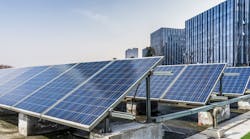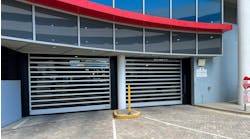Solar panels achieve peak performance on clear, sunny days, but when bad weather or pollution roll in, energy harvesting nosedives. You can’t change the weather or the air quality, but these tips will help ensure the best possible solar panel efficiency no matter what’s happening outside.
2. Temperature: “Contrary to what people often think, the colder it is, the better the solar panels perform,” Sharma explains. “Some of the best production is in places like Colorado where you have a lot of cold, sunny days.” This is because the solar cells inside the panels degrade when they get hot, resulting in less efficient solar panels. Computers and other devices that use semiconductors experience the same phenomenon.
3. Shading: This category refers to anything blocking the sunlight that’s not a cloud. Some shading is controllable, like trees, and some isn’t, like smog.
4. Soiling: Dirt, dust and other grime that accumulates on the surface affects solar panel efficiency.
Don’t try to save money by having your regular cleaning service do the work – someone who specializes in solar panel cleaning will be familiar with how to clean solar panels without scratching the surface.
How to Increase Solar Panel Efficiency
“If it’s raining frequently, you don’t need to clean them, but if there are long periods with no precipitation, cleaning can make a difference,” Sharma explains. “Cleaning a system that hasn’t been cleaned for a couple of months can improve it by 10 percent or higher. That’s the single biggest factor.”
[Read also: New Solar Tool Enables Better Business Decisions]
If you have a large enough solar installation, like a solar roof or parking lot canopies with photovoltaic panels, you might benefit from hiring a third-party professional with solar panel cleaning experience.
Don’t try to save money by having your regular cleaning service do the work – someone who specializes in solar panel cleaning will be familiar with how to clean solar panels without scratching the surface.
It’s also a good idea to monitor module-level performance to see if any components are starting to fail, Sharma recommends.
Solar panels can last up to 30 years and components like the inverter, which Sharma says is the biggest failure point in the system, only last about 10. Not watching for unexpected dips in performance could mean that your panels will operate inefficiently for months or years before you catch the failure.
Upgraded Solar Panels
Later, when you upgrade your solar panels, be sure to investigate the internal components and technologies of your panel options rather than just the final cost. Net production vs. the cost of ownership is the most important, Sharma says.
[Related: New Solar Energy Codes Book]
“It’s not just the solar panels, it’s also the electronics,” Sharma adds. “Sometimes it’s more expensive up front in terms of the capital investment because you’re spending more for sophisticated solar panels or electronics, but the net result is that it pays back over time much better because you’re harvesting more energy.”
Two handpicked articles to read next:



